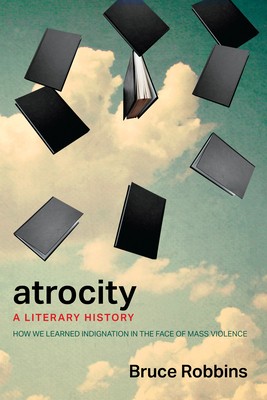
- We will send in 10–14 business days.
- Author: Bruce Robbins
- Publisher: Stanford University Press
- ISBN-10: 1503640558
- ISBN-13: 9781503640559
- Format: 15.5 x 23.1 x 2.5 cm, hardcover
- Language: English
- SAVE -10% with code: EXTRA
Reviews
Description
Mass violence did not always have a name. Like conquest, atrocity was not always seen as violating a moral norm or inviting indignation. Could the concept even exist before people could accuse their own country of mass violence committed against the inhabitants of another country? Posing this cosmopolitan question to a vast archive of representations, Bruce Robbins seeks to give atrocity a literary history.
In the presence of atrocity, what we want most is for someone to bear witness. What is it literature can do with atrocity that simple testimony cannot? As a work of literary history, the book answers that question, showing how variously literature goes beyond the the legal paradigm of accusation. Meanwhile, the book uses the long history of representations of mass violence from the Bible to Zadie Smith to pursue the bold proposition that, in the midst of relentlessly repetitive slaughter and nameless, shapeless, irredeemable suffering, humanity's moral history might include a cosmopolitan arc.
With penetrating insight, Robbins takes up literary representations of atrocity such as Bartolomé de las Casas' account of his fellow Spaniards' atrocities, Kurt Vonnegut's Slaughterhouse-Five, Grimmelshausen's 1668 novel Simplicissimus, David Mitchell's Cloud Atlas, Gabriel GarcÃÂa Márquez's One Hundred Years of Solitude, Homero Aridjis's short novel Smyrna in Flames, and Tolstoy's Hadji Murat. What's achieved is a profound exploration of the longer trajectory of abhorrence and indignation and a critical examination of the conditions that have yielded the cosmopolitan postwar recognition of atrocity.
EXTRA 10 % discount with code: EXTRA
The promotion ends in 17d.07:26:05
The discount code is valid when purchasing from 10 €. Discounts do not stack.
- Author: Bruce Robbins
- Publisher: Stanford University Press
- ISBN-10: 1503640558
- ISBN-13: 9781503640559
- Format: 15.5 x 23.1 x 2.5 cm, hardcover
- Language: English English
Mass violence did not always have a name. Like conquest, atrocity was not always seen as violating a moral norm or inviting indignation. Could the concept even exist before people could accuse their own country of mass violence committed against the inhabitants of another country? Posing this cosmopolitan question to a vast archive of representations, Bruce Robbins seeks to give atrocity a literary history.
In the presence of atrocity, what we want most is for someone to bear witness. What is it literature can do with atrocity that simple testimony cannot? As a work of literary history, the book answers that question, showing how variously literature goes beyond the the legal paradigm of accusation. Meanwhile, the book uses the long history of representations of mass violence from the Bible to Zadie Smith to pursue the bold proposition that, in the midst of relentlessly repetitive slaughter and nameless, shapeless, irredeemable suffering, humanity's moral history might include a cosmopolitan arc.
With penetrating insight, Robbins takes up literary representations of atrocity such as Bartolomé de las Casas' account of his fellow Spaniards' atrocities, Kurt Vonnegut's Slaughterhouse-Five, Grimmelshausen's 1668 novel Simplicissimus, David Mitchell's Cloud Atlas, Gabriel GarcÃÂa Márquez's One Hundred Years of Solitude, Homero Aridjis's short novel Smyrna in Flames, and Tolstoy's Hadji Murat. What's achieved is a profound exploration of the longer trajectory of abhorrence and indignation and a critical examination of the conditions that have yielded the cosmopolitan postwar recognition of atrocity.


Reviews